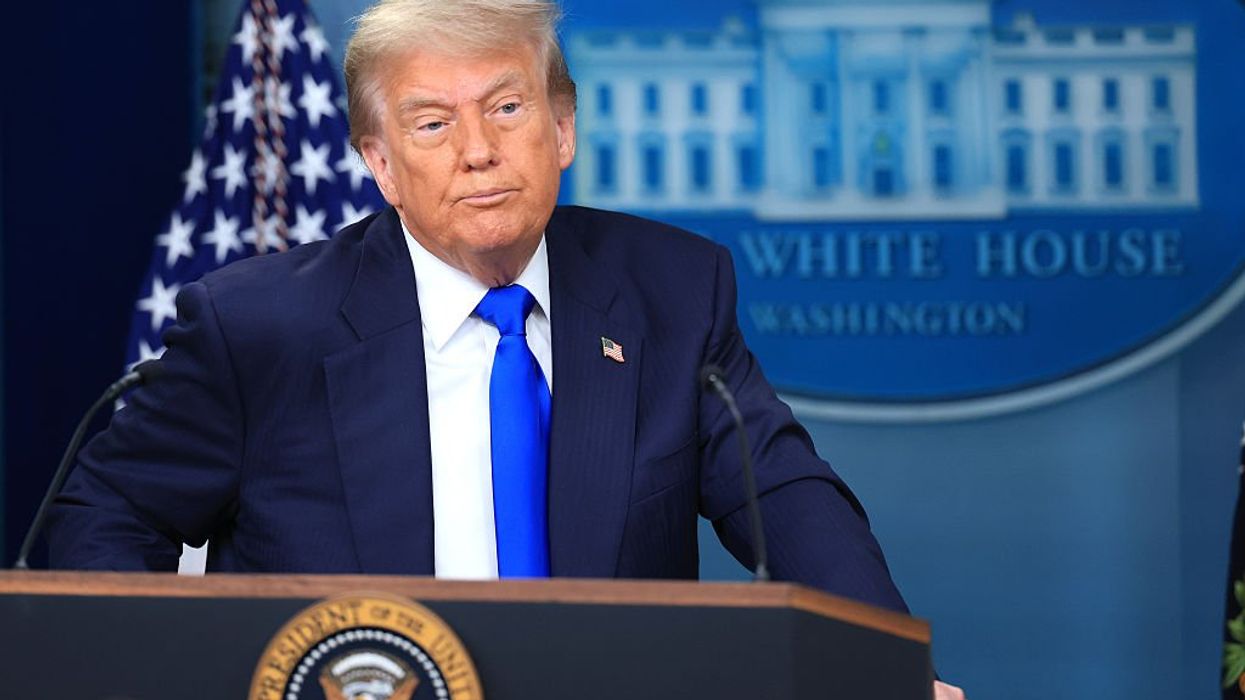New York Times reporter David Sanger has spent roughly two decades covering the inner workings of Washington, D.C., but he says the Obama administration is the "most closed, control-freak administration" he's ever covered.
The scathing critique is found in a yet-to-be released report on press freedom in the U.S. authored by Leonard Downie Jr., a former Washington Post editor. In the report, "he claims that national security reporters face 'vast and unprecedented challenges' as a result of government surveillance, secrecy and 'sophisticated control' of the news media's access to government," Politico reports.
 In this photo taken Friday, Oct. 4, 2013, President Barack Obama listens to a question during a wide-ranging and exclusive interview with The Associated Press in the White House library in Washington four days into a partial shutdown of the federal government. Credit: AP
In this photo taken Friday, Oct. 4, 2013, President Barack Obama listens to a question during a wide-ranging and exclusive interview with The Associated Press in the White House library in Washington four days into a partial shutdown of the federal government. Credit: AP
Sanger claims that White House employees and intelligence agency staff were ordered to stop communicating with him in 2012. The freeze-out reportedly came after Sanger wrote a story about U.S. and Israeli cyberattacks against Iran's nuclear facilities.
Sanger also told Downie that a memo "went out from the chief of staff a year ago to White House employees and the intelligence agencies that told people to freeze and retain any e-mail, and presumably phone logs, of communications with me." He says his sources then blocked him out, refusing to communicate with him "until this blows over."
“This is most closed, control-freak administration I’ve ever covered," Sanger said.
However, the start of the current atmosphere of secrecy and surveillance actually began with the passage of the Patriot Act in 2001, following the horrific 9/11 terrorist attacks.
More from Politico:
After the Patriot Act, "a vast expansion of intelligence agencies and their powers, the aggressive exploitation of intrusive digital surveillance capabilities, the excessive classification of public documents and officials’ sophisticated control of the news media’s access to the workings of government, journalists who cover national security are facing vast and unprecedented challenges in their efforts to hold the government accountable to its citizens," he expains.
National security reporters now find "that government officials are increasingly fearful of talking to them, and they worry that their communications with sources can be monitored at any time," he writes.
The pressure has only increased under the Obama administration: "Relying on the 1917 Espionage Act, which was rarely invoked before President Obama took office, this administration has secretly used the phone and e-mail records of government officials and reporters to identify and prosecute government sources for national security stories," Downie writes.
–
[related]

 In this photo taken Friday, Oct. 4, 2013, President Barack Obama listens to a question during a wide-ranging and exclusive interview with The Associated Press in the White House library in Washington four days into a partial shutdown of the federal government. Credit: AP
In this photo taken Friday, Oct. 4, 2013, President Barack Obama listens to a question during a wide-ranging and exclusive interview with The Associated Press in the White House library in Washington four days into a partial shutdown of the federal government. Credit: AP





